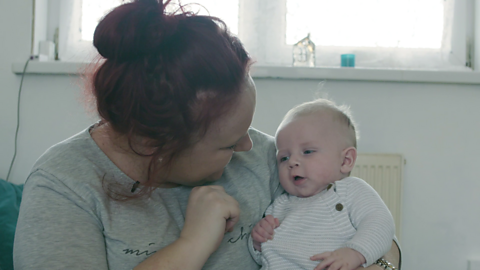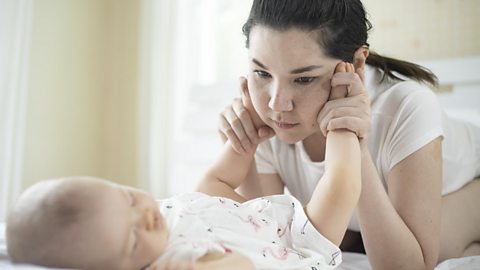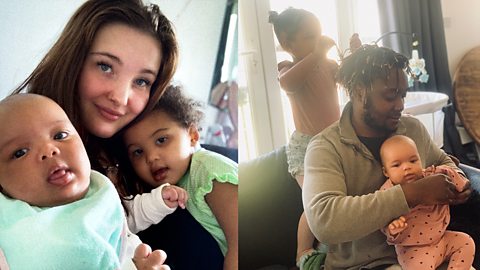Millie Ellison, 26, mum to 18-month-old Cairo, was diagnosed with postnatal depression shortly after her son was born. Here she shares her story, along with advice for other mums struggling with perinatal mental health issues.
Finding out I was pregnant literally changed my world overnight. At the time I was 24, in the middle of completing my training to become a health visitor and a leader at my church. IŌĆÖm from a really religious home and I knew me being pregnant and not being married would be a massive deal.
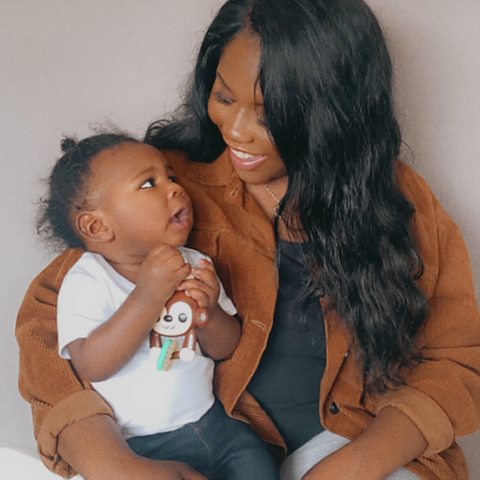
And it was. My parents were really disappointed in me, I lost my position at church and I also lost a lot of friends because pregnancy outside marriage wasnŌĆÖt the norm in my group. I suddenly found myself very isolated and I think thatŌĆÖs where my depression started. For the next nine months I was mostly on my own. I struggled to get through each day.
Before getting pregnant, IŌĆÖd never had any mental health issues. So it took me a long time to recognise what was happening. Emotionally, I was very unstable. I would be very happy one minute and sad the next. I also lost my appetite and went from a size 14-16 down to a size 8-10 when I gave birth.
Apart from scans, I wasnŌĆÖt even going to my antenatal appointments.
ThatŌĆÖs not to say I didnŌĆÖt want my baby - I was looking forward to him being born. I did love my son; I just didnŌĆÖt love my situation. I hoped that when he arrived, that would be the end of my depression. I didnŌĆÖt realise adding a baby on top of my feelings would make me drown in them.
Cairo was born in August 2019 and I was so happy to have him. He lit up my world, but I remember looking at him and inside me there was this sadness that wouldnŌĆÖt shift. It wasnŌĆÖt anything heŌĆÖd done. Instead, I felt like I was still holding on to all those emotions IŌĆÖd had in pregnancy.
I was on my own a lot in those early days with lots to do and the exhaustion really magnified how I felt. In the beginning, Cairo would wake up every two hours which was difficult. People would say that being tired was normal with a new baby, yet my level of tiredness felt anything but normal. There were some days IŌĆÖd look at my son and think, ŌĆ£I donŌĆÖt know if I have the energy to look after you today.ŌĆØ
My depression turned into worry. I was so isolated, I could easily get lost in my thoughts, taking me to some very dark places. TheyŌĆÖd bring on panic attacks: I was always worried something bad would happen to Cairo. He could be out with a family member and if they were even a minute late back, IŌĆÖd be convinced theyŌĆÖd had a car crash. There were times I would actually go and collect him early as I was so worried.

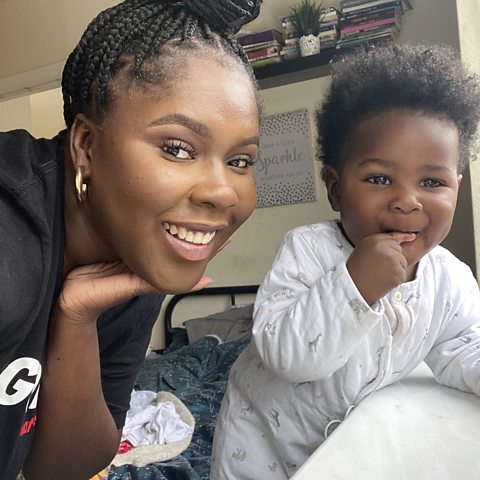
When the depression was at its worst, I couldnŌĆÖt sleep as I was scared I wouldnŌĆÖt wake up and Cairo would have no one to raise him. IŌĆÖd just lie there looking at the ceiling and think about all the things that could go wrong.
It wasnŌĆÖt until Cairo was about three months old and a friend asked me how I was that I broke down. I told her how hard I was finding it. And that if this was how the next 18 years was going to go, I didn't want to be here.
After that, something clicked. I realised how I felt wasnŌĆÖt normal. This wasnŌĆÖt motherhood.
I went online and did a self-referral for the .
The counsellor called me later the same day, saying because I was postnatal and Cairo was under one, I had priority. We spoke for an hour and at the end of the call she told me I was I was very likely suffering from strong postnatal depression (PND).
I felt huge relief that I did have a problem and that what I was feeling wasnŌĆÖt an indication of failure. And that it was temporary.
The counsellor asked me to come in for an hour every week for therapy. In the sessions we talked about how I was feeling, and she gave me methods for coping.
Cairo is now 18-months-old and heŌĆÖs such a happy, boisterous boy. HeŌĆÖs back at nursery while I work as a health visitor and he spends every other weekend at his dadŌĆÖs.
I still have therapy - you only get six weeks on the NHS and even though I was in a much better place at the end of it, I felt like it was something I wanted to continue.
I think with motherhood you always have down days. The difference is when I was struggling with PND, one bad day could turn into a bad month. Now a bad day is just a bad day.

MillieŌĆÖs top tips
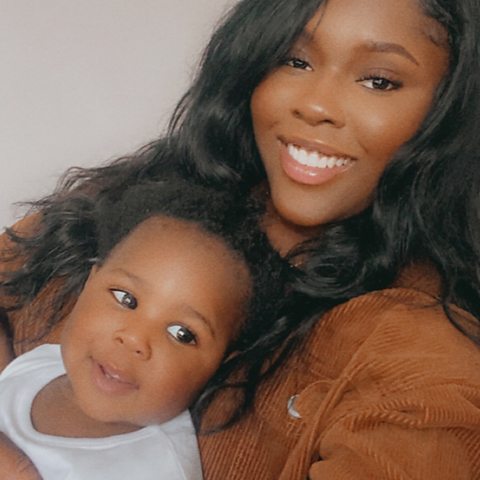
1. Write a worry book
Give yourself 20 minutes of worry time a day. Write down your worries in a book and then lock it away. Any time you find yourself spiralling after that, tell yourself youŌĆÖve done your worry time for the day.
2. Access help
It doesnŌĆÖt have to be counselling. Talking to a friend or family member can make a big difference. Utilise the village you have and donŌĆÖt be afraid to ask for help.
In my work as a health visitor, I give my mobile number to women who might have anyone they feel comfortable speaking to. They will then text me and we can set up support to help with their PND.
3. Make self-care a priority
You need some time for you. You need to sleep, look after your basic needs, brush your hair. All those things really lift your mood. I have a strict rule - Cairo is in bed by 8pm and that gives me at least two hours to have a hot dinner and get ready for the next day.
4. Try the ŌĆśstopŌĆÖ technique
When you find your mind wandering or going down a path of worries, say ŌĆśstopŌĆÖ out loud. This brings you back to the present.

Further help
- The NHS has lots of useful information about
- If you feel like your mental health is suffering due to loneliness or isolation as a new parent, it may be worth speaking to your GP.
- offer PND awareness and support.
- can also offer support and advice.
- Additionally, one of the organisations listed by │╔╚╦┐ņ╩ų Action Line may be able to help.

